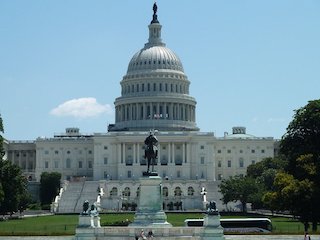Lobbying continues between those who favor fiber and those who support other broadband delivery technologies such as wireless, satellite, and cable, concerning the infrastructure package being drafted by a bipartisan group of Senators. Global tech trade association, the Information Technology Industry Council (ITI), asked lawmakers to keep any broadband subsidy language in the bill text technology neutral.
ITI wrote to Sens. Maria Cantwell (D-WA) and Roger Wicker (R-MS) and Reps. Frank Pallone, Jr. (D-NJ) and Cathy McMorris Rodgers (R-WA), commending Congress and the Biden Administration for “taking steps to rebuild and modernize our national infrastructure” and urging Congress to pass legislation that would expand broadband access, “to bring U.S. infrastructure into the 21st Century and leave a lasting legacy that will improve the lives of Americans for decades to come.”
“Any federal investments in broadband funding should be technology neutral and consider both fiber and wireless solutions, which means in part that a symmetrical 100/100 Mbps download/upload requirement would fail to adequately address the needs of unserved and underserved Americans,” said ITI President/CEO Jason Oxman in a letter to lawmakers.
The technology neutral position mirrors what the Wireless Infrastructure Association has been lobbying for as well. Inside Towers reported that WIA President/CEO Jonathan Adelstein said last week he’s “thrilled” by recent Capitol Hill actions over how to structure the $65 billion portion of the bipartisan infrastructure deal intended to close the digital divide. Adelstein cited recent rumblings that lawmakers may ultimately opt for lower minimum internet speed requirements than what Democrats had previously hoped for—speeds that would include wireless as well as fiber. “They appear to be moving toward a position that 100 megabits down and 20 megabits up should be the floor. Wireless can reach that, so I’m very encouraged.”
Democrats had wanted to require symmetrical super-fast download and upload speeds of 100 Megabits per second — speeds Adelstein and others cautioned would only allow for more expensive fiber-optic buildout and would effectively prevent cable, satellite and wireless companies from competing for subsidies.
However, fiber proponents aren’t backing down, reports Politico. The Electronic Frontier Foundation, the Fiber Broadband Association, INCOMPAS, the National Rural Electric Cooperative Association, NTCA — The Rural Broadband Association and Public Knowledge urged Congress to stick to the 100/100 Mbps speed requirement for eligible projects, while still prioritizing money for areas that lack the current FCC definition of broadband (25/3 Mbps,). Otherwise, they said, the U.S. will fall further behind China, the E.U. and the U.K.
The bipartisan group of senators hasn’t released the details of their infrastructure framework, so observers don’t believe anything is settled yet. And the pressure is on: Senate Majority Leader Chuck Schumer (D-NY) said last week he’s planning a floor vote this Wednesday to advance the measure, as is, Inside Towers noted.





Reader Interactions